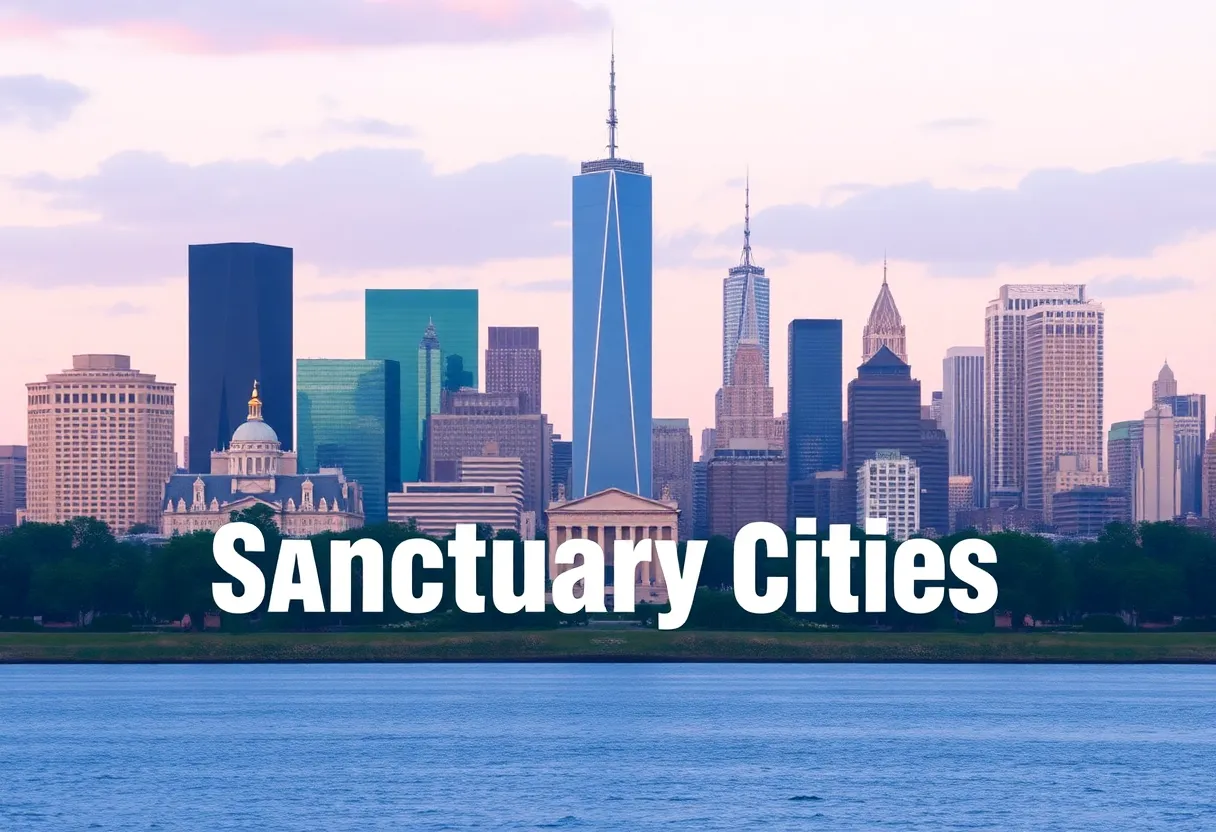

A visual representation of sanctuary cities emphasizing community safety and trust.
In a pivotal decision, U.S. District Judge William H. Orrick has blocked the Trump administration from withholding federal funding from sanctuary cities. This ruling reinforces the autonomy of local governments, emphasizing that funding decisions rest with Congress. Judge Orrick granted a preliminary injunction, ensuring that cities like San Francisco and Santa Clara County will not lose essential federal resources aimed at public safety and community trust. The decision represents a significant stand against perceived federal overreach and highlights the importance of sanctuary policies.
In an exciting ruling that has sent ripples throughout the nation, U.S. District Judge William H. Orrick has effectively blocked the Trump administration from withholding federal funds from sanctuary cities. This decision comes after assessing the situation and determining that the presidential executive order in question is unconstitutional.
Judge Orrick’s decision specifically stops the federal government from pulling funding from places like San Francisco, Santa Clara County, and 14 other local jurisdictions deemed as sanctuary areas. He granted a preliminary injunction, building on a similar ruling he made back in 2017 against a previous executive order that aimed to restrict funds based on immigration policies.
The judge firmly stated that the authority to determine spending rests with Congress. He pointed out that any presidential efforts to attach strings to federal funds are simply not in line with the principles of the U.S. Constitution. Essentially, Orrick’s ruling means that the Trump administration cannot *directly or indirectly* hold back funds from these cities and counties.
This ruling is particularly significant when you consider the potential impact on local programs aimed at keeping communities safe. The cities involved are worried that losing these federal dollars could jeopardize various public safety initiatives. This includes vital resources for supporting victims of crime, addressing issues like carjackings, and conducting important forensic analysis.
Without federal funding, these municipalities fear they could struggle to maintain the trust of their residents, as uncertainty about budgets could arise. Orrick highlighted the importance of community trust in local governments, especially in the face of potential federal overreach.
The Trump administration has now been instructed to inform all relevant federal departments and agencies about this ruling by the upcoming Monday. However, there is still some ambiguity regarding whether federal agencies will comply fully with Orrick’s decision. The U.S. Transportation Secretary has already reminded states to comply with federal immigration laws, indicating that tensions may persist.
As for sanctuary cities, these are generally defined as municipalities that limit their cooperation with Immigration and Customs Enforcement (ICE). This means they may not prioritize deportations of undocumented immigrants, creating safe spaces for individuals who might otherwise face immediate removal.
City officials in the involved areas have expressed relief and gratitude at the ruling. It’s been described as crucial in maintaining public safety and trust in local governance. Moreover, cities like Seattle, San Diego, Portland, and New Haven were among the plaintiffs who joined forces in this legal battle. They united to fight against what they saw as harmful financial constraints being imposed from above.
Ultimately, the ruling stands as a significant moment that emphasizes the importance of local government autonomy. It makes it clear that the decision to fund these cities lies with Congress, not the presidency, a vital distinction that defines how federal and local governments interact.
Looking ahead, the results of this ruling could shape the ongoing debate over immigration policies and the role of local authorities in the effort to safeguard communities. For now, though, the judge’s decision is a beacon of hope for those passionate about maintaining community resources and ensuring fair treatment for all residents.
News Summary The Peach Cobbler Factory has opened a new location in Collierville, Tennessee, enhancing…
News Summary The Memphis Summer Cocktail Festival has kicked off, inviting locals to enjoy seasonal…
News Summary In Memphis, community advocate Wendy Sumner-Winter is championing youth opioid recovery amidst rising…
News Summary Cushman and Wakefield | Commercial Advisors has introduced the 'Empowering Art for Self…
News Summary FedEx will hold a public celebration of life for its founder, Fred Smith,…
News Summary Key Republican lawmakers are advocating for greater state control over Memphis-Shelby County Schools…